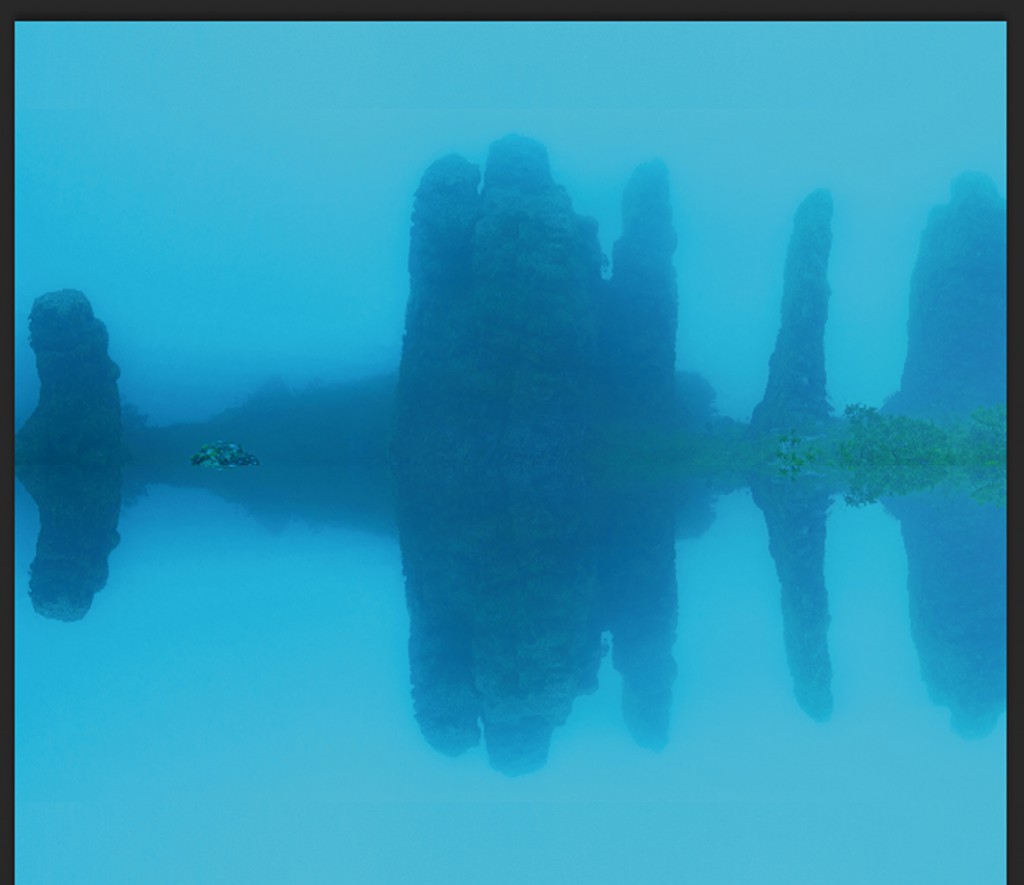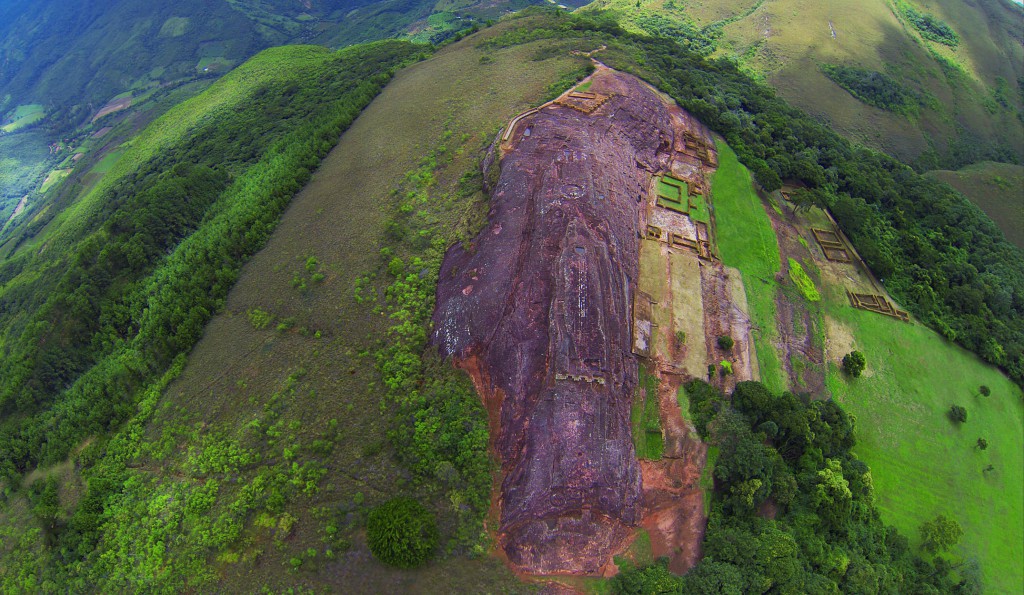Sonia Falcone is one participating artist of the Latin American Pavilion at the 56th La Biennale di Venezia. The director of Goethe Institut in Rio de Janeiro is curator of this collective art work consisting of 17 independent artistic positions focusing on ‘Indigenous Voices’. Here is one inside view from the Bolivian artist who just opened her solo show ‘Faces and Voices’ at Linares Museum in Mexico last week.

Many visitors have kept your artwork at the 55th Biennale in good memory: The clay pots full of spices and pigments which transformed the Latin American Pavilion in an olfactory Wunderkammer . Your artwork this year, your sound installation, seems to be much more political: Could you please describe your installation briefly?
Sonia Falcone: Thomas Mann once said, “If you are possessed by an idea, you find it expressed everywhere, you even smell it.” The idea that has possessed me is the quest for the spiritual dimension in everyday life. In an age when we turn to the material dimension for all our answers, many artists have assumed the age-old responsibility of finding meaning beyond that narrow self-absorbed hedonism of modernity. Yet this is not a call to shun the senses. It is simply a calling to sharpen the vision, such that humanity may awaken to the integral beauty and miracle of consciousness. The story to be told using, for instance, the sense of smell has the potential to turn the narrative of war and conquest between civilizations (as written by spices), into a process whereby civilizations find a common ground, a conversation based on popular markets, the kitchen and the process of nourishing our bodies that transcends prior hegemonies and clashes.
By that same token, a Dutch writer transformed Mann´s “Everything is political” into “Everything is political, but not everything is politics.” To be in awe with different interpretations of reality as expressed by different languages is not a political statement: it is the expression of a human sensibility towards pluralism, with the appeal of different ways of seeing existence that do not necessarily coalesce with the Western construction of self, community and our relationship with nature.
Bourgeois society has commoditized almost every aspect of existence. The role of art is not only to become an object to be consumed, but a wakeup call that crashes into the comfortable space we have built with technology and riches. Thus, to delve into the indigenous languages of Latin America, most of which are in danger of extinction, is “political” only in the sense that is threatens the Western love affair with its own image and its own understanding of reason and reality.

In the curatorial text the curator Alfons Hug described that the “rights of nature” in Bolivia where included in the Constitution as an expression of the “Rights of Nature”, which in the Quechua language is called “sumak kawsay” meaning good life, or even “pure and harmonious life.” It’s about a way of life that enables a harmonious coexistence between people but also between man and nature. If it is: In which way does this inspire you as an artist?
Sonia Falcone: If it hasn´t already, soon it will be cliché to speak of how humans are destroying the very source of their own well-being. What used to be a battle cry a generation ago, of a few hippies and intellectuals concerned with how “progress” is endangering the planet, is now a fact of life. Yet still today we find those willing to deny that global warming is a man-made phenomenon. It is almost like we are willing to “die with the most toys.” This refusal to radically change our understanding of “the good life” is framed in a soulless society. It is not only our relation with nature that is at stake, it is also our relation with God and with each other.
The great irony of the 21st century is that with all the technology afforded to us such that we may be so much closer together, we seem to be drifting apart. The social fiber that once held us together, with a shared sense of values and horizons has heeded to an individualistic search for greater pleasures and the avoidance of pain. The cycles in life, however, are pervaded by moments of sorrow. Only to the extent that we can embrace existence in its totality, can we hope to find peace, love and fellowship with nature and each other. The question is whether we are willing to sacrifice our pleasures in the name of the next generation. Bolivia is one of the few nations that are attempting to use the power of the State to promote a healthier understanding of our interdependence and that openly question the Western ideas of the “good life.”
The idea of involving the State in the shaping of values goes against the current of Liberalism (unless it can be summoned through a “war of necessity”) and is indeed a controversial agenda. The “cultural revolution”, which began with such high expectations in 2005 in Bolivia, has slowly gone the way of the Chinese pragmatism and need to promote internal demand for goods and service. Our economy is not shielded from the logic of the market growth. Therefore, Bolivians cannot claim a stake to a higher moral ground, but simply to a shared objective to find a more harmonious coexistence. If we have not succeeded with “sumak kawsay”, at least we join our voices with those fighting to wake up the rest of humanity from its lethargic state.
You were born in Bolivia, went to school in the United States, are currently living in Mexico and are represented by the Chinese Hai Gallery in Beijing: How global is life for an artist in 2015?
Sonia Falcone: The question is rather how global has life become for everyone. Maybe for an artist the experience is different than for an accountant, yet in a way an increasing number of people’s lives are being impacted by globalization. Artists who are in tune with this process are also inspired by the proximity of otherness. So it’s not simply moving physically from place to place, but also being in tune with discovering other ways of being. Whereas only a handful could discover other cultures in our recent past, the possibility of becoming an explorer, an anthropologist, has become accessible to many.

Read more about the Venice Biennale:
Interview with Fabiano Kueva (Latin American Pavilion)
Performance from Humberto Vélez (Latin American Pavilion)
Have a look at these three special pavilions (Luxemburg, Latin America, Aerbaijan)